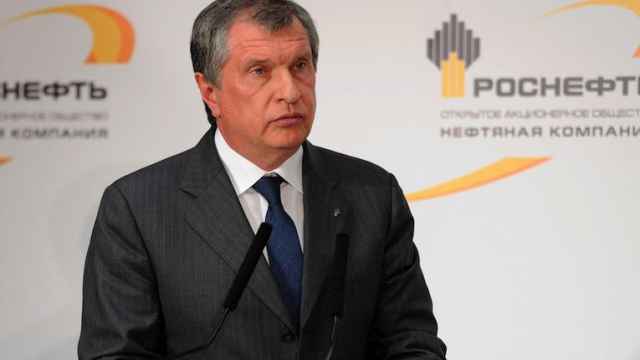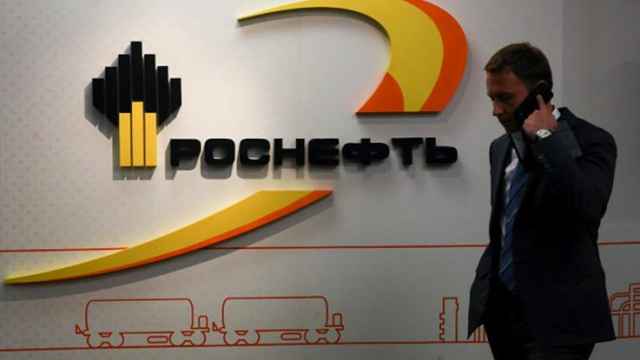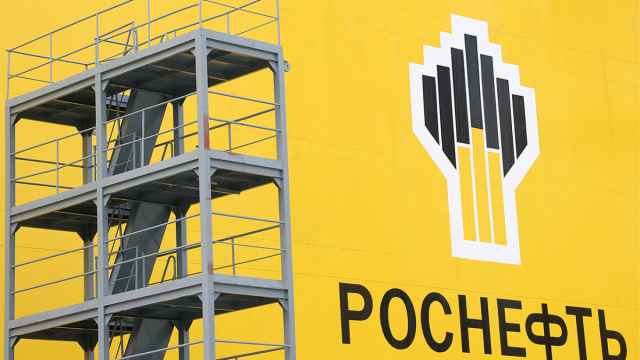The privatization of Russian oil giant Bashneft has been postponed, Russian Prime Minister Dmitry Medvedev has confirmed.
The deal
is unlikely to take place before the end of the year, and will
probably happen only after the government sells its stake in Rosneft,
one federal official said.
Russian newspaper Kommersant has reported that the Kremlin
is reportedly delaying the deal due to increasing tension in government
circles linked to rivalry between two major bidders, Lukoil and Rosneft.
Lukoil
has been tipped by experts to buy the government stake, but bids placed
by Rosneft have rocked the financial sector with uncertainty. Although
Rosneft is a private company and can legally take part in the
privatization process, the Russian government own a 69.5 percent stake
in the firm through its parent company, Rosneftegaz.
The approaching privatization has sparked conflict between members of the presidential administration and the government, but high level talks were still continuing, the Kommersant source claimed.Russian President Vladimir Putin has yet to state his position on whether Rosneft will be able to take part in the deal, causing greater uncertainty, the source said.
Others have speculated that the delay is due to a request from the President of the Russian Republic of Bashkortostan, Rustem Khamitov, to delay the deal.
Khamitov reportedly wrote to Russian President Vladimir Putin in order to stress the importance of Bashneft to the republic’s budget. He asked that the terms of the privatization deal included leaving tax and non-tax payments, dividends, and charitable assistance in Bashkiria budget at 2015 levels.
If the company purchasing the Bashneft stake has insufficient funds, it may take out loans to make the deal: as Tatneftgaz and Rosneft, owned by Eduard Khudainatov, may do. That debt burden will then be shifted onto Bashneft. Company President Alexander Korsik has already warned that this level of debt would ruin the company’s profitability.
The Bashneft stake up for sale is valued at 306 billion rubles ($4.8 billion), and buying out the 11.7 percent stake of minority shareholders would cost another 36 billion rubles ($563 million), said GL Asset Management portfolio manager Sergei Vakhrameyev. If the buyer places all of this, plus interest, as debt on the Bashneft balance sheet, it will halve the company’s net profits, he said.
This would cause serious problems for the Republic of Bashkiria, who depend on Bashneft for a major source of budget revenue.
Bashneft paid Bashkirian government 7.3 billion rubles ($114 million) in dividends and 16.9 billion rubles ($264 million) in tax on profits in 2015. They also made a charitable donation of 1.9 billion rubles ($30 million) for charity work and infrastructure development in regions where the firm had a presence, and 3.13 billion rubles ($49 million) for the Salavat Yulayev ice hockey club. Totalling some $457 million, this income made a sizable chunk of the republic's $2.2 billion 2015 revenue.
Lukoil, one of the main contenders to buy the Bashneft stake, has sufficient funds to close the deal outright. Lukoil president Vagit Alekperov was the first potential bidder to speak with Khamitov about the Bashneft sale, a company source said.
Another possible reason for postponing the sale is that the government and the Kremlin might not yet have decided to whom they want to entrust Bashneft, said one potential buyer.
A “clan” of individuals oppose selling the stake to Lukoil, the source said, but selling to Rosneft is also problematic. While legally able to take part in the privatization, the government owns a 69.5 percent stake in the firm through its parent company, Rosneftegaz.
Both government officials and the Kremlin strongly oppose allowing Rosneft to participate in the process, but the company has shown unusual perseverance: it has filed an application and refuses to withdraw it unless the government issues an official refusal.
The delay could have major implications for Russia's budget. Bashneft and Rosneft are the main sources of privatization revenue for 2016, and together they could add approximately 1 trillion rubles ($15.6 billion) to government coffers. If the Bashneft sale does not take place in 2016, said one federal official, the government’s reserve fund will definitely be depleted by the end of the year.
A Message from The Moscow Times:
Dear readers,
We are facing unprecedented challenges. Russia's Prosecutor General's Office has designated The Moscow Times as an "undesirable" organization, criminalizing our work and putting our staff at risk of prosecution. This follows our earlier unjust labeling as a "foreign agent."
These actions are direct attempts to silence independent journalism in Russia. The authorities claim our work "discredits the decisions of the Russian leadership." We see things differently: we strive to provide accurate, unbiased reporting on Russia.
We, the journalists of The Moscow Times, refuse to be silenced. But to continue our work, we need your help.
Your support, no matter how small, makes a world of difference. If you can, please support us monthly starting from just $2. It's quick to set up, and every contribution makes a significant impact.
By supporting The Moscow Times, you're defending open, independent journalism in the face of repression. Thank you for standing with us.
Remind me later.






